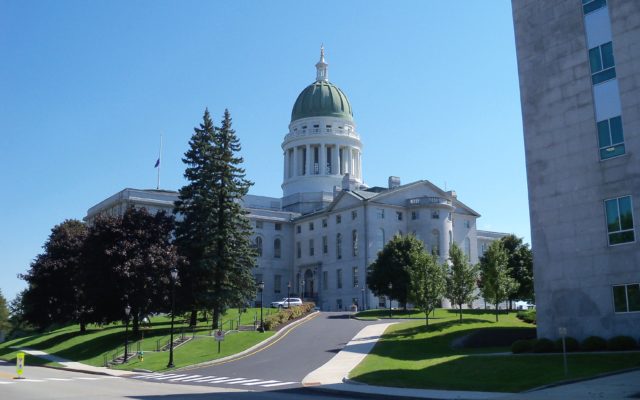
This Democratic bill could end Maine’s unique presidential election system
By Billy Kobin, Bangor Daily News Staff
Maine Democrats have put forward a proposal to no longer award the state’s Electoral College votes by congressional district if Republican-led Nebraska also switches to a winner-take-all system for presidential elections.
The bill from Rep. Adam Lee, D-Auburn, is the first piece of legislation here directly responding to the debate out of Nebraska, where Republicans initially tried but failed last year to advance a plan at the urging of President Donald Trump to switch to a winner-take-all system and leave Democratic-led Maine as the only state to award presidential electors by congressional district.
Nebraska lawmakers have revived that effort this year alongside a backup plan to ask voters to decide on making such a change by referendum. Trump and his allies have pushed the change to benefit Republican presidential candidates in Nebraska, which has not voted statewide for a Democratic candidate since 1964 but has given one of its five electoral votes to Democrats in recent elections from the Omaha-area 2nd Congressional District.
Maine became the first state under a 1969 law to award one Electoral College vote to the winner of each of its two congressional districts. The statewide winner gets the other two. Nebraska followed in 1991 in a bid to gain more campaign attention from presidential candidates.
Lee, a lawyer in his second term, deferred when asked for comment Friday to an op-ed he wrote that starts by saying he hopes nobody has to implement his bill. If both states change their systems, then Lee said neither party will gain an advantage.
“I believe our current system works,” Lee wrote.
Nine Democrats from both urban and rural areas of Maine are currently cosponsoring Lee’s proposal, which was referred Friday to a legislative committee that handles election issues. It would require Maine’s four electors to cast their ballots for the ticket that receives the most number of votes under the state’s ranked-choice voting process if Nebraska switches to a winner-take-all system.
Although Republican lawmakers in Nebraska hold a supermajority of 33 seats in its officially nonpartisan unicameral Legislature, they have once again encountered hurdles with passing a winner-take-all measure. Sen. Merv Riepe, a Republican from Omaha, has vowed not to back the change to help it avoid a promised filibuster but acknowledged a separate bill could receive enough support to place a referendum on the 2026 ballot.
“It’s a poison pill for my district,” Riepe, who is up for reelection next year, reportedly said. “And it’s just not necessary. We won’t have a presidential election again until 2028. We have bigger issues to deal with this year.”
A different Republican senator from Omaha helped defeat last year’s swift push to change Nebraska’s system ahead of the November election that Trump ended up winning by a 312-226 margin over former Vice President Kamala Harris.
Former Maine House Majority Leader Mo Terry, D-Gorham, said last year the Democratic-controlled Legislature would have been “compelled” to act if Nebraska made a switch, but Maine legislators on both sides of the aisle had not endorsed that.
Trump carried Maine’s rural 2nd District in each of his elections, while his Democratic opponents carried the 1st District in the southern portion of Maine and won the statewide vote. Former President George H.W. Bush was the last Republican to carry Maine in 1988.
It is not yet clear how Gov. Janet Mills, a Democrat who is termed out of office next year, will view Lee’s proposal. Last year, Mills let a proposal become law without her signature to put Maine in an interstate compact seeking to elect presidents by a national popular vote.
Lee’s op-ed noted he did not vote for Trump, but many of his neighbors did. He supports the current system that “protects the will of the voters” yet is “under attack” in Nebraska.
“I know how important it is to protect our system,” Lee wrote. “I also know that hope and inaction isn’t a strategy.”